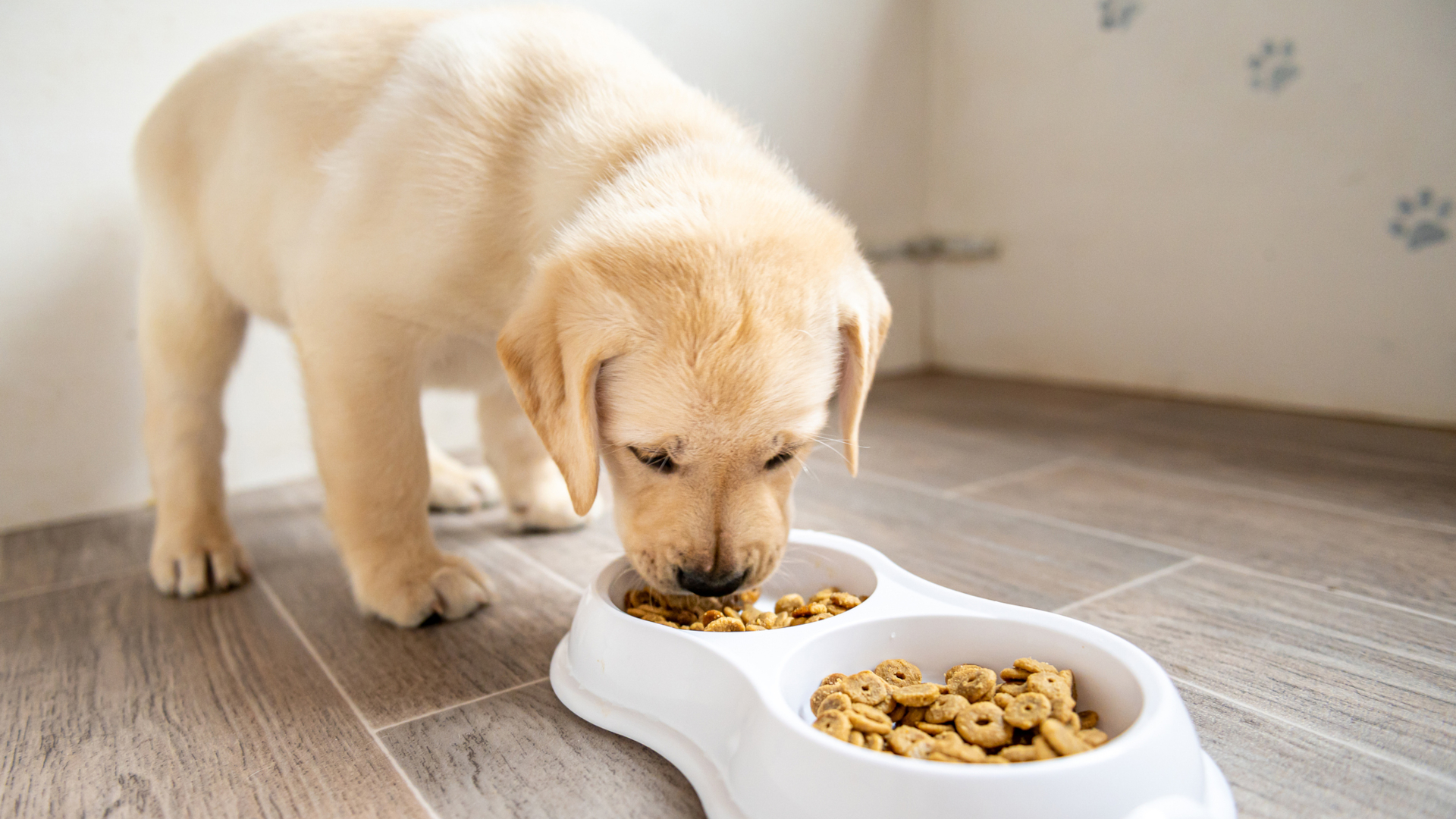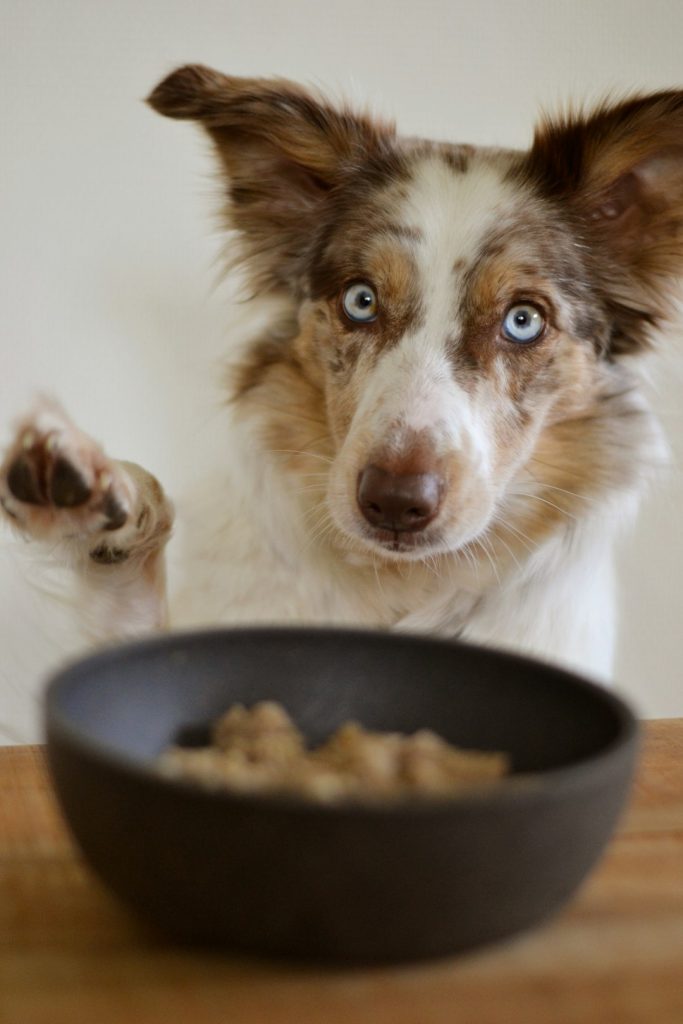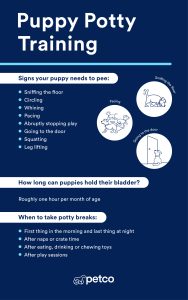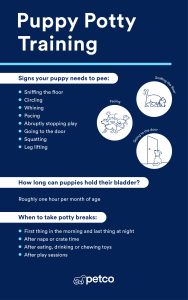Are you wondering when your playful puppy can start eating adult dog food? It’s a question every dog owner faces as their furry friend grows up.
Feeding your puppy the right food at the right time is crucial for their health and happiness. Choosing the wrong moment could affect their growth or digestion. You’ll discover the clear signs to look for and expert tips to make this important switch smoothly.
Keep reading to ensure your puppy gets the best nutrition at every stage of life.
Puppy Nutrition Basics
Puppies need special nutrition to grow healthy and strong. Their diet changes as they get older.
Knowing when to switch to adult dog food is important for their health and development.
Nutritional Needs By Age
Puppies need more calories, protein, and fat than adult dogs. They use this extra energy to grow fast.
- Newborn to 8 weeks: Puppies rely on mother’s milk for all nutrients.
- 8 weeks to 6 months: High protein and fat support rapid growth.
- 6 months to 1 year: Nutrient needs start to balance as growth slows.
- 1 year and older: Nutritional needs stabilize for maintenance.
Differences Between Puppy And Adult Food
Puppy food has more calories and nutrients to support growth. Adult food is made for maintaining health.
| Feature | Puppy Food | Adult Dog Food |
| Calories | Higher | Lower |
| Protein | More | Moderate |
| Fat | Higher | Lower |
| Vitamins & Minerals | Added for growth | Balanced for health |
| Texture | Smaller kibble size | Larger kibble size |

Credit: www.youtube.com
Signs To Switch Food
Knowing when to switch your puppy to adult dog food is important. This helps your dog get the right nutrients for its growth and health.
Watch for key signs that show your puppy is ready to eat adult food. These signs include changes in growth, behavior, and advice from your vet.
Physical Growth Indicators
Puppies grow fast, but they do not need puppy food forever. When your dog reaches about 80% of its adult size, it may be time to switch foods.
Other signs include harder teeth and less rapid weight gain. These changes mean your puppy is maturing and needs different nutrients.
- Reaches about 80% of adult weight
- Teeth become stronger and more permanent
- Growth rate slows down noticeably
Behavioral Changes
Behavior can show if your puppy is ready for adult food. Puppies eating adult food may feel more full and less restless.
Look for calmer eating habits and less begging for food. Puppies also may become less hyper after meals as their diet changes.
- Calmer and less picky at mealtime
- Less begging or searching for extra food
- More settled energy after eating
Veterinarian Recommendations
Your vet can tell you the best time to switch food. They check growth, health, and breed needs to give advice.
Follow your vet’s advice closely. They may suggest a gradual change to avoid tummy problems.
- Regular check-ups to monitor growth
- Advice based on breed and size
- Guidance on how to switch foods slowly
Ideal Timing For Transition
Knowing when to switch puppies to adult dog food is important for their health. The right time helps them grow strong and stay healthy.
This guide explains the best timing based on age, breed size, and health status. Each puppy is unique and needs a careful transition.
Age Milestones
Puppies need special food until they reach certain ages. Most puppies switch to adult food between 9 and 12 months old.
Smaller breeds usually switch earlier than larger breeds because they mature faster. Watch your puppy’s growth and energy levels.
- Small breeds: around 9 to 12 months
- Medium breeds: about 12 months
- Large breeds: 12 to 18 months
Breed Size Considerations
Breed size affects when puppies should eat adult food. Large breeds grow slower and need puppy food longer to support bones.
Small and medium breeds mature quickly. They can switch to adult food earlier to meet their energy needs.
- Small breeds: Mature by 9-12 months
- Medium breeds: Mature by 12 months
- Large breeds: Mature by 12-18 months
Health Status Factors
Health issues can change the timing of the food switch. Puppies with health problems may need special diets for longer.
Always check with a vet before changing food if your puppy has allergies or digestive issues. A vet can advise the best plan.
- Puppies with allergies may need special food
- Digestive problems require slow food changes
- Vet advice helps ensure safe food transition

Credit: www.petsradar.com
How To Transition Safely
Switching your puppy to adult dog food needs care and patience. A safe transition helps avoid stomach upset.
Follow these steps to make the change easy for your puppy’s health and comfort.
Gradual Mixing Method
Start by mixing a small amount of adult food into your puppy’s regular meal. Increase the adult food slowly over time.
- Day 1-3: Mix 25% adult food with 75% puppy food.
- Day 4-6: Mix 50% adult food with 50% puppy food.
- Day 7-9: Mix 75% adult food with 25% puppy food.
- Day 10 and after: Feed 100% adult dog food.
Monitoring For Reactions
Watch your puppy closely during the change. Check for signs of discomfort or allergies.
| Symptom | What to Do |
|---|---|
| Vomiting | Reduce adult food amount and try slower mixing. |
| Diarrhea | Pause the transition and consult your vet if it continues. |
| Itchy Skin | Check ingredient list for possible allergens. |
| Loss of Appetite | Offer familiar foods and monitor eating habits closely. |
Adjusting Portions
Adult dog food has different nutrition needs. Adjust your puppy’s portions carefully.
- Follow the feeding guidelines on the adult food package.
- Consider your puppy’s weight, age, and activity level.
- Consult your vet for personalized feeding advice.
- Watch your puppy’s weight to avoid overfeeding or underfeeding.
Common Mistakes To Avoid
Feeding puppies adult dog food too soon can cause health problems. It is important to know when to switch their diet.
Many pet owners make mistakes that affect their puppies’ growth. Avoiding these errors helps your puppy stay healthy.
Switching Too Early
Puppies need special food until they grow enough. Switching to adult food too early can harm their development.
Adult dog food lacks nutrients puppies need for strong bones and muscles. Wait until your puppy is about one year old.
Ignoring Nutritional Needs
Adult dog food has different nutrients than puppy food. Puppies need more protein and fat for energy and growth.
Feeding the wrong nutrients can cause weak bones and low energy. Check your puppy’s needs before switching food.
- Puppy food has more calcium and phosphorus
- Puppies need higher fat content
- Adult food supports less active dogs
Sudden Food Changes
Changing a puppy’s diet suddenly can upset their stomach. This can cause diarrhea or vomiting.
Switch food slowly over 7 to 10 days. Mix small amounts of adult food with puppy food each day.
- Start with 25% adult food and 75% puppy food
- Gradually increase adult food every few days
- Watch for any digestive problems

Credit: www.purina.com
Long-term Feeding Tips
Knowing when to switch puppies to adult dog food is crucial. It ensures they grow strong and healthy.
Puppies usually transition to adult food around their first birthday. Small breeds may switch earlier, while larger breeds might need more time.
Maintaining Balanced Diet
A balanced diet keeps your dog healthy and energetic. Choose food that has all essential nutrients.
- Proteins support muscle growth
- Fats provide energy
- Vitamins and minerals boost immunity
Adjusting For Activity Levels
Your dog’s activity level influences how much food they need. Active dogs require more calories.
Less active dogs need fewer calories to prevent weight gain. Monitor their weight regularly.
Regular Vet Checkups
Regular vet visits help monitor your dog’s health. Vets can provide advice on diet changes.
They can also check for any health issues that might require dietary adjustments. Always consult your vet before making significant changes.
Frequently Asked Questions
When Is The Right Time For Puppies To Eat Adult Dog Food?
Puppies can start eating adult dog food around 12 months old. Small breeds may switch earlier, at 9-12 months. Consult your vet to ensure the food meets their nutritional needs during this transition.
Why Shouldn’t Puppies Eat Adult Dog Food Too Early?
Adult dog food lacks essential nutrients like DHA and higher protein needed for growth. Feeding it too early can stunt development and harm immune health. Always use puppy-specific food until they reach the right age.
How To Transition Puppies From Puppy To Adult Food?
Gradually mix adult food with puppy food over 7-10 days. Increase adult food portion daily to avoid digestive upset. Monitor your puppy’s health and appetite during this transition for best results.
Can Switching To Adult Food Affect Puppy Growth?
Switching too early can lead to nutritional deficiencies and poor growth. Proper timing ensures puppies get balanced nutrients. Always follow vet advice to support healthy development during food changes.
Conclusion
Puppies need special food to grow strong and healthy. Adult dog food lacks some nutrients puppies require. Most dogs switch to adult food around one year old. Watch your puppy’s size and health for the right time. Always ask your vet before changing their diet.
Changing food too soon can cause stomach problems. Feeding the right food helps your dog live longer. Keep your puppy happy with good nutrition and care. Small steps make a big difference in your puppy’s life.

Emily Barker is the founder of ChillDogLife.com, a space dedicated to helping pup parents discover the best dog products, lifestyle tips, and cozy ideas for happier homes.
A lifelong dog lover, Emily combines her passion for pets with a knack for research to share trusted recommendations on everything from toys and furniture to health and everyday care.
Her goal is simple: to make life easier, stylish, and more joyful for dogs and the people who love them.







